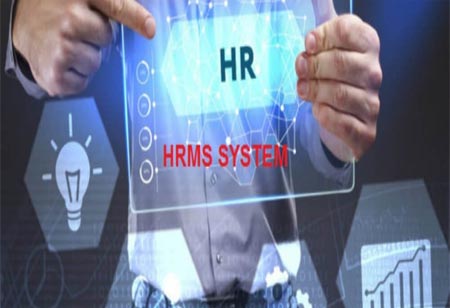THANK YOU FOR SUBSCRIBING
Be first to read the latest tech news, Industry Leader's Insights, and CIO interviews of medium and large enterprises exclusively from Hrtech Outlook
THANK YOU FOR SUBSCRIBING

By
HR Tech Outlook | Monday, May 17, 2021
Stay ahead of the industry with exclusive feature stories on the top companies, expert insights and the latest news delivered straight to your inbox. Subscribe today.
An HRMS should ensure the security of one's employees' sensitive data. Breach of protection not only jeopardizes the interest of staff, clients, and partners, but employers also risk non-compliance by failing to follow data privacy laws.
Fremont, CA: A Human Resource Management System, or HRMS, is software that integrates HR functions such as talent management, payroll, time monitoring, benefits administration, and others into a single platform. HR modules are used in HR management systems. Human resource modules are based, automated tools that remove manual tasks, aid in enforcement, and securely store data. HRMS modules can be integrated with internal and external systems to further optimize processes.
Reasons to use HRMs modules:
Safely Store Data
An HRMS should ensure the security of one's employees' sensitive data. Breach of protection not only jeopardizes the interest of staff, clients, and partners, but employers also risk non-compliance by failing to follow data privacy laws. To protect all of the data, a cloud-based HRMS has layers of security built-in, such as access restriction and two-factor authentication.
Workflow Automation
Automated tools eliminate the need to manually enter data, reduce the possibility of error, and save time and money. HRMS modules can create custom workflows to support HR processes. One may, for instance, customize improved workflows to build an Employee Record Management database or a step-by-step process for one's employees during open enrollment that involves automated communications to keep staff on track. One can also quickly review reports to see if any of their workers are approaching overtime or make a swift fix if their payroll has been noncompliant with their state's time and labor laws.
Employees can Manage their Own Data
An employee portal allows workers to access their personal details, freeing up resources for the HR administrators. Employees, for instance, will check their life change activities, locate their benefit statement and paystubs, and request time off and sick leave. Through putting this paperwork in the hands of one's staff, HR will concentrate on strategic, high-impact tasks like bonus packages, performance evaluations, and onboarding. Employees will see which benefits they are eligible for, which aids in enforcement.
I agree We use cookies on this website to enhance your user experience. By clicking any link on this page you are giving your consent for us to set cookies. More info

However, if you would like to share the information in this article, you may use the link below:
www.hrtechoutlookeurope.com/news/important-hrms-modules-nid-2122.html



